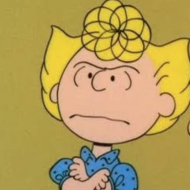In May, 2005, The Believer launched Sedaratives, an advice column helmed by Amy Sedaris that soon featured a cast of guest advisers—writers, producers, actors, and comedians—who, every month, were given a selection of questions that ranged from the poignant to the, well, not:
My mother says that nobody has good manners anymore. This coming from a woman who fucked three strangers at Woodstock. Does her moral grandstanding carry any weight at all?
Is there a manly way in which to eat cotton candy? If so, I’d like to find out what it is.
I’m looking for a book that I can read on the subway and it’ll make all the other commuters look at me with envy, and possibly even think, “Good god, he must be so much smarter than the rest of us I bet he’s got his life together. I want to be his friend.” Any recommendations?
Such are the quandaries in “Care to Make Love in That Gross Little Space Between Cars?,” the second collection of the Sedaratives columns, which includes advice from, among others, Louis C.K., Zach Galifianakis, Dave Eggers, Julie Klausner, Sam Lipsyte, and George Saunders. Saunders’s answer to that question of what book to read on the subway gave the collection its title. Recently, he took the time to discuss advice columns, beehive hairdos, and creepy stares; an edited version of the exchange appears at newyorker.com.
